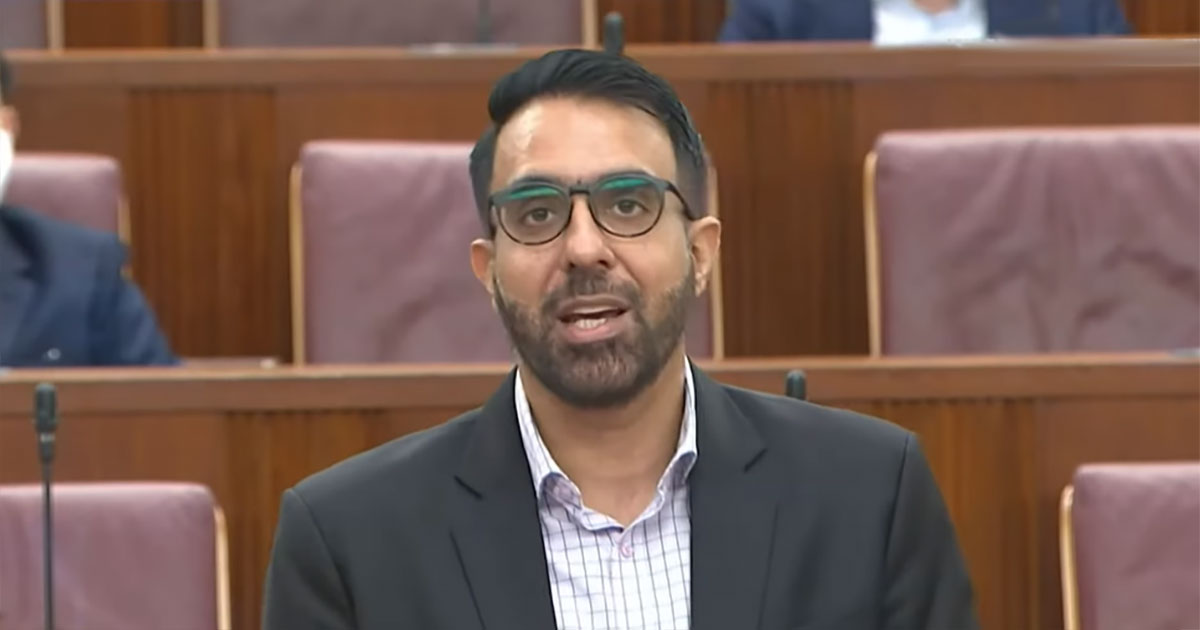Leader of the Opposition Pritam Singh called attention in Parliament to the responsibilities and salaries of Community Development Council (CDC) mayors in Singapore.
The Workers' Party member of Parliament (MP) for Aljunied GRC was the first on Wednesday, Feb. 24 to speak out of 60 MPs.
The MPs will deliver speeches and debate on the Budget delivered by Deputy Prime Minister Heng Swee Keat on Feb. 16.
Issue of salaries of mayors
Singh, who said he was voicing what he heard from Singaporeans during the last 2020 General Election, told Parliament that the salaries of CDC mayors are "outrageous", mainly because they are perceived to not warrant a high pay.
He also proposed that the government review the need for full-time mayors heading these CDCs in the present situation, as there is scope for a serious review of their roles and responsibilities.
Background on CDC and its mayors
CDCs, established in 1997, coordinate grassroots bodies and community programmes to bring the community closer.
In 2001, the CDCs were reorganised, from nine originally to today's five districts.
They follow that of the existing political divisions, with each handling between four and six GRCs and SMCs, and roughly dividing the country's population into equal parts.
Each CDC is headed by a mayor, who is an elected MP.
Currently, the mayors are Low Yen Ling (South West CDC), Denise Phua (Central Singapore CDC), Desmond Choo (North East CDC), Alex Yam (North West CDC) and Fahmi Aliman (South East CDC).
Mayors are paid an annual salary of S$660,000, according to the White Paper on Salaries for a Capable and Committed Government published in 2012, which is inclusive of variable pay and bonuses.
Mayor's role and pay a GE2020 issue
Singh told Parliament: “The CDCs have come into the spotlight after the last General Election because many Singaporeans are of the view that the salaries of mayors are outrageous, principally because they are not perceived to commensurate with a mayor’s roles and functions today.”
Singh also pointed out that CDCs overlap with other institutions that serve similar purposes.
"Other Singaporeans are of the view that the CDCs' functions can be carried out by other existing entities, or by ministries and statutory boards, including other organisations under the People's Association, particularly since the social footprint of each CDC is uneven, and can differ greatly compared to another," Singh claimed.
"Yet others simply don't know what the CDCs do."
Singh questions whether CDC is the best implementing agency for the vouchers
DPM Heng announced in his Budget speech that all Singaporean households would receive S$100 worth of vouchers each to be used at participating neighbourhood shops and hawker centres.
To support the voucher scheme, a S$150 million grant will be given to the CDCs, which will give out the vouchers.
CDCs were formed in 1997 under the PA to strengthen community bonds and foster social cohesion.
However, Singh said there are other existing organisations that can better take charge of this programme.
The Citizens’ Consultative Committee (CCC), Singh said, is a grassroots organisation in each ward or constituency that is widely known to have representatives of the various merchants’ associations.
“It would follow that these local bodies like CCCs are even more closely connected to the ground than the five CDCs, rendering the CDCs’ role in the voucher scheme potentially superfluous,” Singh said.
“It would appear to me as if the government is trying to find some way to make the CDCs relevant in view of their relative absence in the public mindshare.”
The WP chief also called on the government to clarify if the vouchers can be used at larger supermarket chains.
If so, there is a risk that the neighbourhood shops in the heartlands will not benefit from this scheme as they get bypassed.
Hence, he suggested that the government can focus purely on heartland shops, which includes local provision shops, traditional Chinese medical halls, fruit sellers, barbers.
Budget for CDCs under spotlight
The 43-year-old opposition politician also highlighted the ballooning sums of money set aside for CDCs in 2020.
In 2020, in the first of four Budget statements labelled the Unity Budget, the government had allocated S$20 million to the CDCs.
This was later increased to S$75 million in the Resilience Budget -- the second Budget -- a month later.
The S$75 million figure, Singh noted, was equal to all the reserves of the CDCs for the 2018 financial year.
Singh also questioned how much of the S$150 million put into the latest voucher scheme will be allocated for the vouchers and the amount allocated for the administrative cost of the programme.
Heng, as the Finance Minister, is likely to respond to the points raised by MPs in his round-up speech on Friday, Feb. 26.
If you like what you read, follow us on Facebook, Instagram, Twitter and Telegram to get the latest updates.
